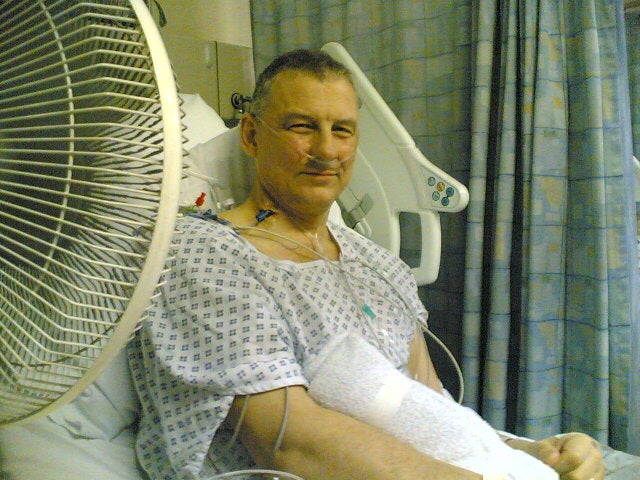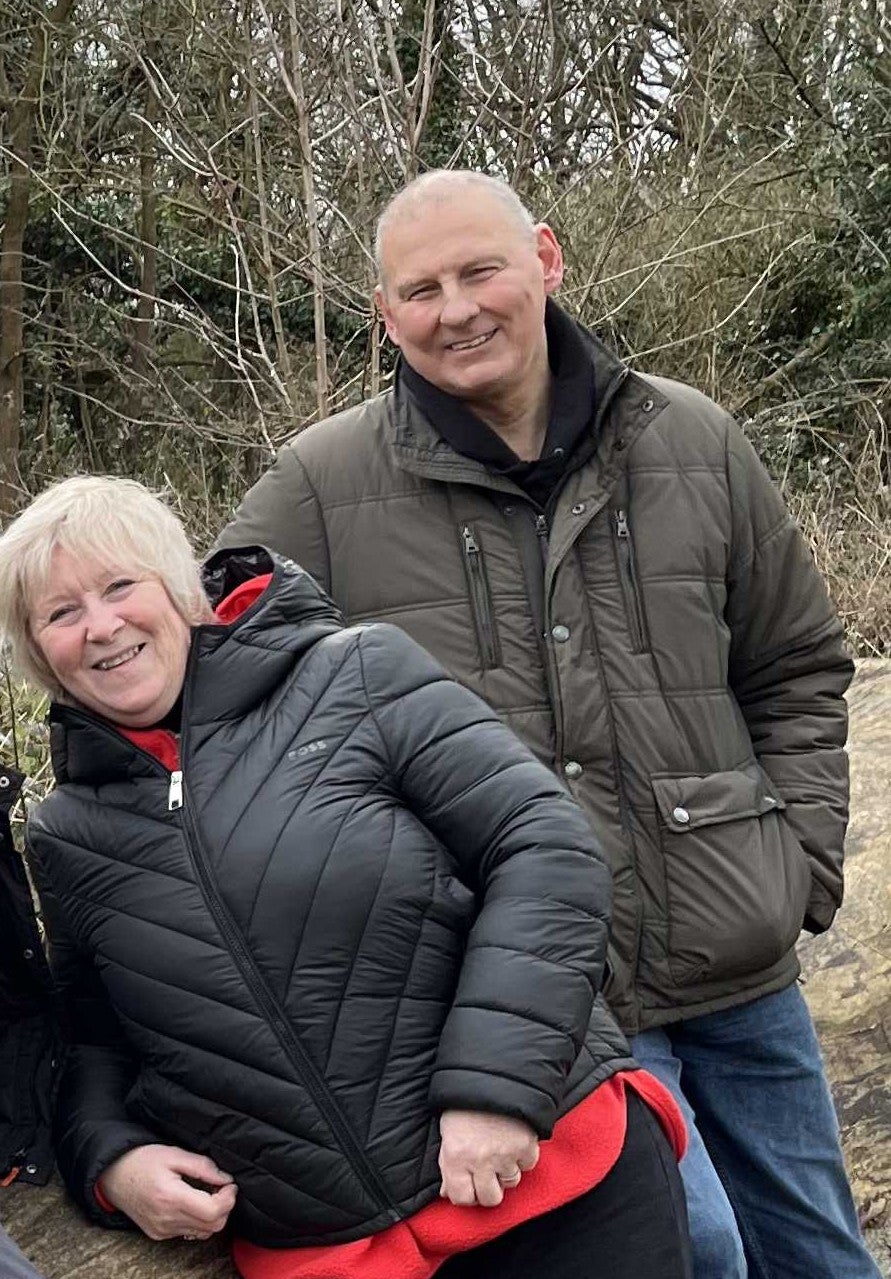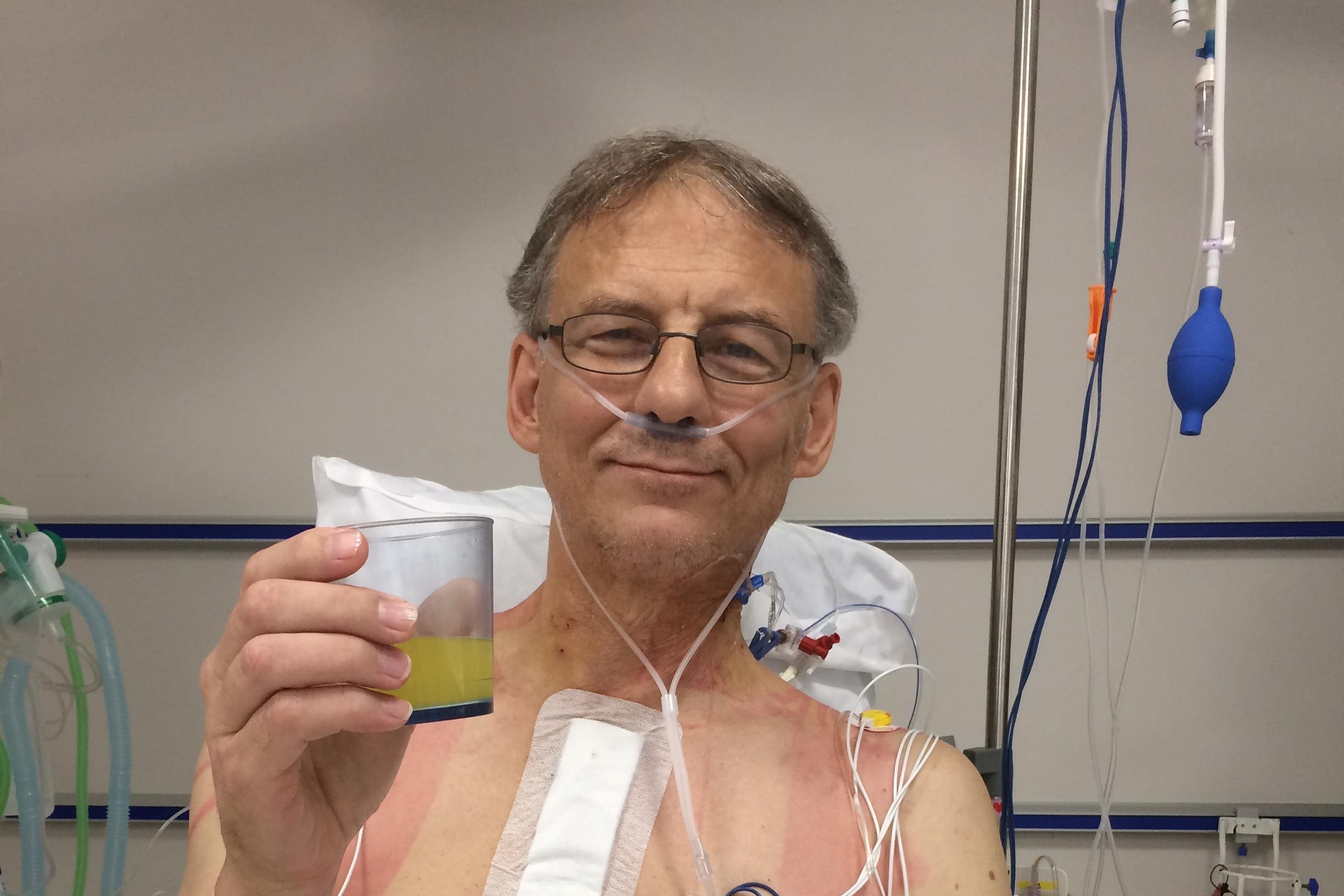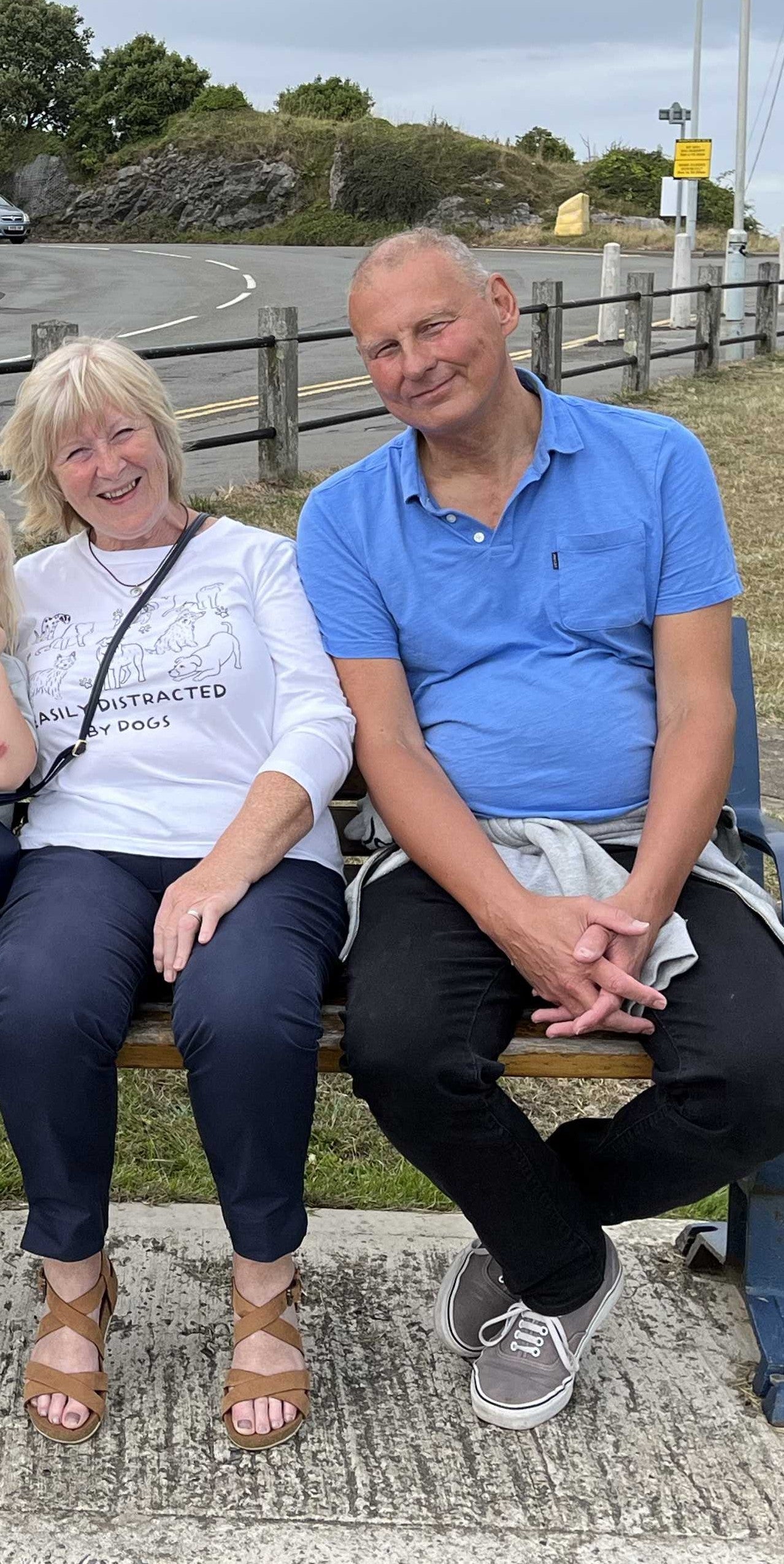Man who almost died several times after tooth extraction issues warning to others
Greg Hutton estimated it has cost the NHS around £400,000 to keep him alive

A man who almost died several times after having a tooth removed is calling for a change to medical guidance.
Greg Hutton, 62, survived two bouts of endocarditis, a serious and often fatal heart infection, which kills almost 30% of sufferers within a year.
The infection was brought on after he had a tooth removed and he was not given pre-emptive antibiotics, despite him having a heart condition which can make you more susceptible to infection.
Now Mr Hutton, from Swansea, is calling for changes to medical guidelines to prevent other people going through the same pain he has.
The former school IT technician first contracted endocarditis after having a tooth removed in November 2017, when his dentist refused to give him pre-operation antibiotics.
The dentist said he was following the National Institute for Health and Care Excellence (Nice) guidelines – the body which provides guidance to the NHS.

Mr Hutton believes that if he had been given antibiotics prior to the operation he likely would have avoided infection and a subsequent heart attack.
A Nice spokesman said they have updated their guidance this year with a link to Scottish dental information, but Mr Hutton believes it does not go far enough.
He said: “It was horrendous, absolutely horrendous, not just for me but for my family as well, for my wife especially.
“Before all this happened in 2017 I used to run, I was quite fit, I used to play five-a-side football in work, then to have that suddenly taken away.
“It’s always been something of mine to keep fit and maintain my fitness for as long as possible. Without that, I would be dead.”
Mr Hutton was born with a bicuspid valve, a congenital heart defect where the aortic valve has two flaps instead of the normal three, for which he had a replacement in 2014.
He said: “In 2017 I had a problem with one of my fillings, I went to see the dentist and he said, ‘we’re going to have to pull the tooth’.
“Come the day of the appointment I went to see him, and he said he couldn’t give me antibiotics because it goes against the Nice guidelines, and he would get into trouble.
“I would be considered a high-risk patient anywhere else in the world because of my heart valve operation, but in 2008 Nice changed the guidelines because there had been a scare about too many antibiotics prescribed.
“The dentist, who had had several months to check out what was the best treatment for me prior to extracting the tooth, basically said, ‘I’m going to pull the tooth, but you can’t have antibiotics’.

Two weeks after the extraction Mr Hutton began to feel ill and was barely able to walk.
Doctors initially could not work out what was wrong with him and he had around 35 appointments to identify the issue.
“My GP thought it was leukaemia at one point, but nothing was showing in the blood test,” he said.
“My organs were failing, and it felt like they were taking it in turns to give me a kicking from the inside.
“They were breaking down slowly, kidney problems, liver problems, I was struggling to breathe.”
It was only when Mr Hutton began searching for the cause of his enlarged spleen that he discovered a tooth extraction can sometimes cause endocarditis.
He said: “I went into the hospital and didn’t come out for four months, I was in a hell of a state.”
The only treatment that would stop the infection was gentamicin, which made him go deaf in one ear, and he suffered an embolism in his spleen.
Only a few months into his recovery, Mr Hutton became ill again.
He said: “I went to my GP, he looked at me and he said, ‘you’re going straight to hospital’. I said I’d go pack a bag, he said ‘no, I’m taking you straight to hospital’.
“He sat me in his car and drove me straight there and I spent another three months in hospital.”
The second time he went to hospital he was treated for fungal endocarditis, which can be more deadly than the bacterial infection he had suffered previously.
“According to statistics I should be dead, I put that down to my fitness,” he said.
“After three months, I was discharged with the words, ‘go home, enjoy the rest of your life, or however long that may be’.
“They felt, I’m sure, that I might have a couple of years to survive because the mortality rate is very high.
“Then a couple of months later, I was in the garden and I had a heart attack.”

He estimated it has cost the NHS around £400,000 to keep him alive, while the sachet of antibiotics he could have taken would have been only a few pounds.
After he was discharged, Mr Hutton contacted Wolferstans Solicitors, who got him a substantial settlement from his dentist, which he believes to be the second largest on record.
He has now written to Nice to call for them to change their guidelines.
This year Nice started referring to Scottish dental information in its guidance but Mr Hutton did not believe this went far enough.
He believes Welsh and English dentists will continue to believe that information is for Scotland and new guidance is needed.
A Nice spokesman said they had published an update to their guidance in October and while advice remains antibiotics should not be prescribed routinely to prevent infective endocarditis (IE) it “may be appropriate” for certain people with structural heart defects.
He said the Nice recommendations directly link to advice from the Scottish Dental Clinical Effectiveness Programme.
“This advice on antibiotic prophylaxis for people at high risk of infective endocarditis undergoing dental procedures and relevant patient information was developed in conjunction with, and is endorsed by, Nice.”
He added: “While there is some new evidence about the benefits of preventive use of antibiotics for people at higher risk of IE, this remains insufficient to change the overall recommendations in the Nice guideline, which seeks to balance the potential benefits of antibiotics with the risks of increasing anaphylaxis and antibiotic resistance.”
Bookmark popover
Removed from bookmarks